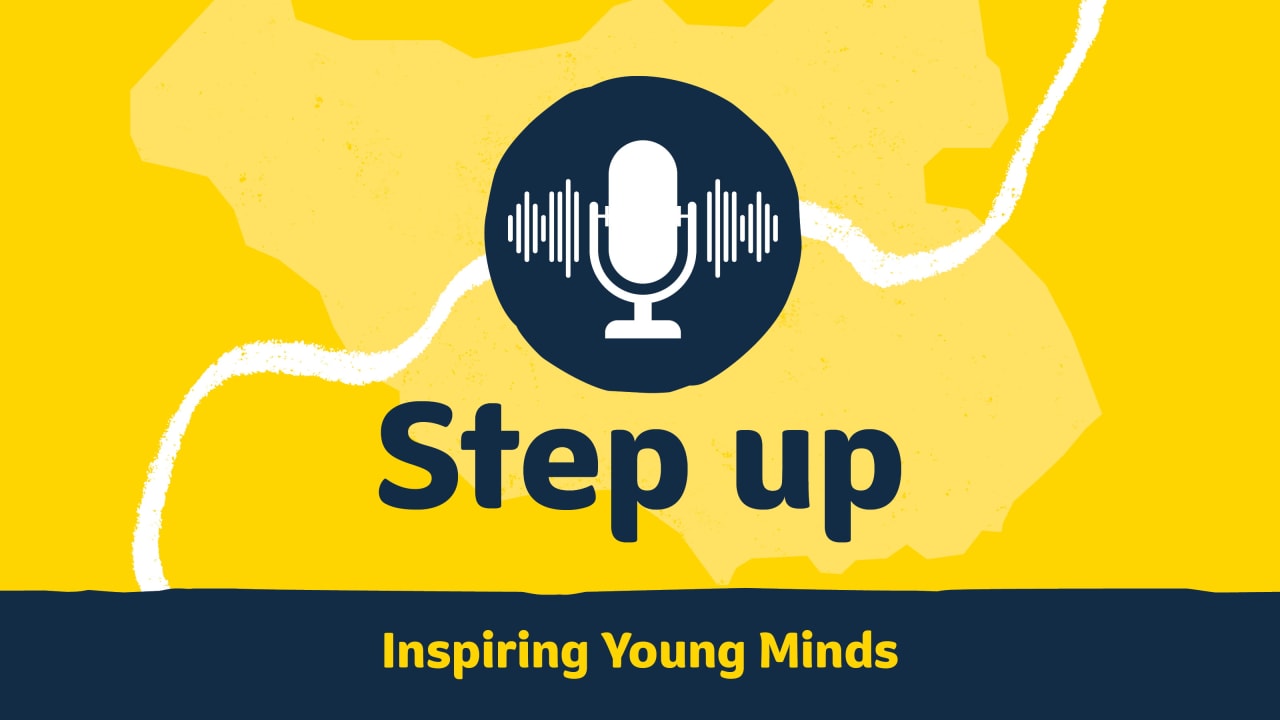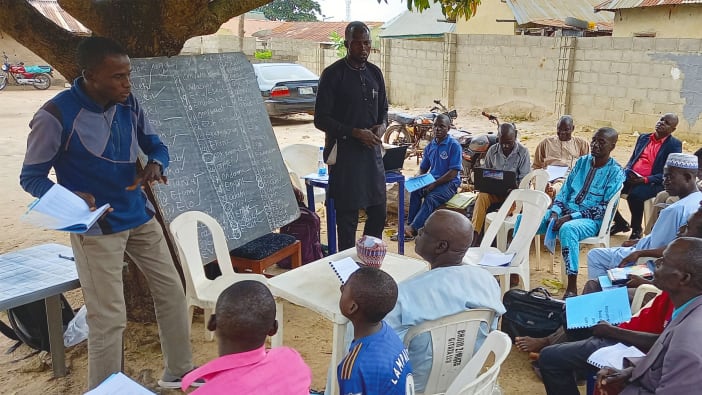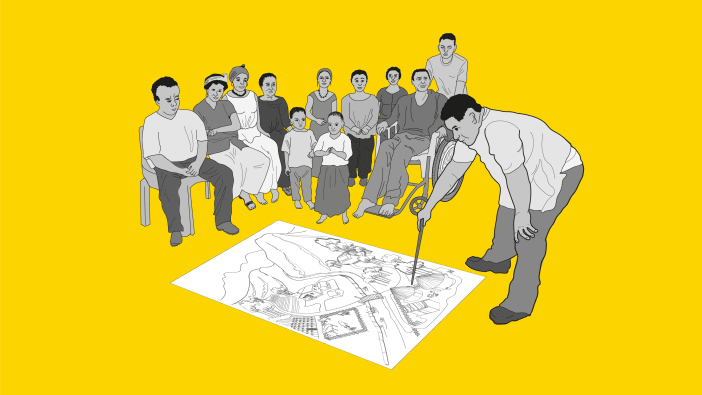Season 1 of this podcast will focus on the youth in South Sudan and throughout the season, you will hear inspiring conversations that centre on experiences and reflections around youth empowerment and transformation, climate change and environmental care, Peacebuilding and social cohesion, mental health, transformative gender norms, social innovations and technology and many more, all through the eyes of the youth, with the view of learning from each other and encouraging the young people to step up and transform their lives.
In each of the episodes, we will engage incredibly talented young women and men in the country and beyond to use creative thinking methods to discuss existing challenges affecting the youth and deliberate on available options for the young people as they navigate through their daily challenges and life choices.
My name is Rosemary Wilfred – I am the Media and Communication Manager at Tearfund South Sudan. I will be your host for this conversation.
In this 1st episode of Step up, we will introduce the season with a conversation about the positive contribution of the youth towards nation-building, the challenges they face, and ideas on how some of these issues can be addressed.
My guest for this conversation is a very dynamic and self-driven Gender and Youth advocate engaged in various national and international efforts to influence policies for the youth across Africa.
Welcome, Grace…tell us more about yourself and what you do.
Grace Aguil Garang:
Thank you. My name is Grace Aguil Garang. I am a member of the International Advisory Committee for the Kingdom of Netherlands. I'm also the executive director for Youth and Society Africa. I work with policy officers from the Netherlands in developing international policies for young people across Africa and South Sudan. And within South Sudan, I'm a youth activist, I'm a gender activist. I work in ensuring and leading conversations towards working for young people, by young people with young people.
Rosemary Wilfred:
Thanks GRACE for joining us on Step up. Let’s start by giving a bit of context to others who may be listening to us from other parts of the country, who is Youth and what is your understanding of the general youth population in this country?
Grace Aguil Garang:
That's a complicated question for South Sudan, specifically because South Sudan is already a young nation by itself. Young people in South Sudan are not well-defined. Which kind of brings up the issue of who is a young person? What is a young person and where should young people be?
So, I would describe a young person, according to the African Youth Charter, which is what we as a member of the African Union would describe a young person is someone between the ages of 18 to 35, which basically qualifies you as a young person. And with the youth policy for South Sudan, that is not yet passed. It also describes a young person as someone between the age of 18 and 35.
The young population in South Sudan is often described as up to 70% of the population is youthful. Between these age groups, we also what the main problem when people talk about young people is they want to say that young people are a homogeneous group like the one to say its youth.
But often people forget that 70% of the population of South Sudan is very diverse, very heterogeneous. Young people are interpreted as young for technocrats, doctors, engineers, young people, change makers, young people, leaders, and young people are movers and shakers.
And we contribute to nation-building in different ways from being as simple as local vendors or whatever, to drivers or cattle keepers. And as soon as we understand that, we cannot call young people as one group of people, but as a diverse group of people.
And taking into consideration how different we are, it's easier to now understand our challenges, our issues, and how we should face them differently.
Rosemary Wilfred:
Well, personally, I do not know why. I would say what we have is speculation, but deeply I would call it a lack of political will. And often because young people, as I told you, are movers and shakers and change makers and we push we have all this energy within us. And I would make an assumption that this is threatening to other leaders. But to me, that shouldn't be a threat. In fact, leaders should take advantage of the energy that young people bring into this space and use it to their advantage toward nation building
And, also the issue of age group, because we have people who are not young in youth spaces, and when we have a policy or a legal framework that defines what a young person is, often they would not have a legitimate claim towards youth spaces. And to me, that's the problem of being selfish. Let young people lead their own spaces and make their own decisions. And not just their spaces, but even spaces that are predominantly for all the generations, for the sake of we are for the future, we work here for a future, and that future belongs to us.
And if we don't set the systems now, if we are not in the system now, if you're not part of the table, part of the decision-making, then who? We have people who will not be planning our future. So, I think it shouldn't be a problem that we bring the energy of the young people to put in basic and important decision making.
You work with the youth. You're always around your peers. What, in your view, are some of the main challenges that the youth population in South Sudan is facing?
Grace Aguil Garang:
The challenges that young people face are different depending on the context and where they stay if they are in the rural or the grass areas of being a Juba if they are literate or not. But let's say, for example, what we generally face is unemployment and finding access to formal employment is a big issue. I would say for different reasons. Let's say we. The issue of qualifications. The issue of access. The issue of corruption. And this creates such a huge barrier for young people who now we have a huge group of people who are educated, some who are not, but cannot access employment opportunities or work. And we would say things like illiteracy, which now affects a different group of people who are at the grassroots, who do not have access to education, which is also another problem. And illiteracy rates, you would see, is often now used against where this young group of young people who are illiterate does not have access to globalisation, in general, are often used in conflicts because they're easy to manipulate. Now would go to different groups of, let's say, women and young girls who face issues to do with child marriage, gender inequality, forced marriage, gender-based violence, and sexual harassment.
But the biggest issue, I would say, is economic vulnerability affecting huge groups of young people. And then I would also add one important one for us. Within us are the young people. We have a lot of disunity among us, disunity because of our diversity, and also because of the lack of mechanisms that bring us together. We are still stuck on the idea of tribes. We are still stuck in ideas of different ideologies. And one person defined the youth as being the divided majority being led by the united minority.
We have the older generations despite our different tribes, they work together, they stay together, but then come down here. And then they divide us as young people and we fight wars that do not belong to us. Often, as I mentioned, because of economic vulnerability and looking for ways to make ends meet.
So I guess apart from many other challenges that affect young people because of our diversity, those would be the main, I would say, for now.
Rosemary Wilfred:
So, what in your view are some of the solutions to these challenges you just talked about?
Grace Aguil Garang:
Well, first, we have the legal frameworks that are supposed to be in place for young people, the youth policy, the Youth Enterprise Development Fund. But basically, what these policies present to the young people of South Sudan are ensuring that we mainstream the youth agenda in different aspects of our decision-making, in different aspects of our nation-building. And ensuring that young people take up important decision-making and be part of that important decision-making that is put in place.
Now on issues of economic vulnerability. I guess the youth just want space to do entrepreneurship. We just need to support the already existing and diverse. And then for us as young people uniting ourselves through maybe civil society organisation, creating spaces that bring us together to come together and solve our conflicts, peacebuilding and at the same time try to innovate and create, as I say, young people are innovators and creators.
But all we need is an investment as well as a financial investment, and time investment. We need access and legal frameworks that allow us to innovate, to be able to reap and make ends meet. But that's a step toward many other things that could be done. But I would say mainly building systems that allow young people to thrive and allow young people to unite and work together and innovate and invest in young people and putting young people in the important decision-making mechanisms or seats to mentor young people so that young people can actively participate in nation building and building their own futures.
Rosemary Wilfred:
Well, Grace, you do a lot of activism at different levels, are there some challenges that you have faced specifically because you are a young woman and you would think, this specific challenge is a gendered one, are there some incidents of this sort in your line of work?
Grace Aguil Garang:
Well, as a young woman in a space that is predominantly patriarchal and trying to speak up on so many issues, just like many other young people, I wouldn't have to speak on some issues that are, I would say, sensitive, and also I would say issues to do with sexual harassment, being looked down on, and I guess every day we work hard to break these barriers and ensure that we continue to prove that young women can achieve and can do better if given the space and not just given, we can take the spaces and basically inspiring other young women to know that they can make it this far. I guess as young women, we have to work twice as hard as young men would have, which is kind of unfair. But at the same time, it's creating a pathway for other young women who are coming up, inspiring other young girls who want to come to these spaces. So I guess it's harder for young women, but as young women, we are doing very well because despite the challenges, we continue to break those barriers and we continue to fight for our rights and take up spaces that would not be given to us, but we would take up ourselves. We need the support, we need the investment, we need the system, we need the legal frameworks that allow us to be in the spaces that protect us.
Rosemary Wilfred:
Yeah, Grace, you spoke about what government and other arms of government can do to address youth issues, but what about the young people themselves, what is your encouragement to the youth, for them to get involved and be part of the solution to the issues we discussed earlier?
Grace Aguil Garang:
I would say so much, but I guess I'm just going to say one thing. Unity among us as young people, despite our careers, despite our age, and despite our tribes. Because I feel like us coming together we are a very, very powerful force and we can achieve a lot and we can solve all problems. I would say to ourselves and we can advocate and push for changes that are for our future and for our present. So, my message for young people would be unity, unity, unity, unity in terms of coming together in an organisation, in civil society, unity in terms of, you know, academic institutions, unity in terms of in our communities, at grassroots, in our hills. But I guess just creating frameworks to bring us together to solve our problems together and to push to solve our problems together.
We have to change the whole idea of youth being the leaders of tomorrow. I feel the youth are the leaders of today and tomorrow, mainly because if we are going to achieve tomorrow, we have to be there today. How can we keep saying that you are going to take up the seats tomorrow? How would we know how to work tomorrow? How do you build the present for tomorrow? So, encouraging and bringing up youth in spaces that are important is not just a thing for tomorrow, but a thing for today. And investing in young people is investing in 70% of the population, which is basically investing in more than half of the country, which is basically investing in actual nation-building. And mainstreaming the youth agenda is very important. I hate it when people say about all issues and then at the end they would say youth issues. But, to be honest, youth issues are everywhere. Issues when we talk about gender, we talk about youth issues. When you talk about conflict, when you talk about trade and investment, when we talk about health, when we talk about any other finance, insurance, financial management, and education, it's important to know that the youth agenda is not alone, it is in every agenda.
So when we plan for projects, when we plan for ideas, when we plan for even budgets, ensuring that the main issue of youth is mainstreamed in every aspect is important and not just putting it as an extra activity, but rather ensuring that when you speak about any kind of activity, any kind of program, any kind of engagement with people, you have to ensure that young people are there.
Rosemary Wilfred:
That was a conversation I had with Grace Aguil Garang, the executive director of Youth and Society Africa, and a member of the international advisory committee of the kingdom of Netherlands. She has been sharing her thoughts on the status of the youth in South Sudan, how the young people are contributing to nation-building, some of the challenges they face, and her thoughts on what needs to be done to address the existing challenges of the youth in South Sudan. My name is Rosemary Wilfred. The media and communication Manager for Tearfund South Sudan. I have been your host for this conversation. Thanks for listening, I hope you join us again next time.








